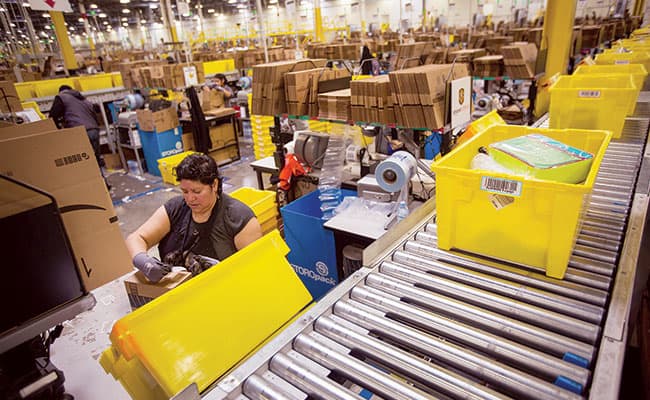Anita Alem is a student at Harvard Law School.
In today’s News and Commentary, OSHA levies more than $60,000 in fines against Amazon, the federal investigation of child labor at slaughterhouses continues, massive strikes begin in France against President Macron’s plans to raise the retirement age, and voluntary recognition of unions by employers is on the rise.
OSHA cited Amazon for violations of the general duty to protect workers from highly dangerous hazards, proposing $60, 269 in fines. The new round of fines follows a previous OSHA citation in December for approximately $29,000 in fines for injury recordkeeping violations. The U.S. Attorney’s Office for the Southern District of New York is investigating whether Amazon “engaged in a fraudulent scheme designed to hide the true number of injuries” in its workplaces. A study of 2021 workplace injury rates found that Amazon had more than twice the rate of injury compared to other employers in the warehouse industry.
Last December, the Department of Labor reached a consent order with an industrial cleaning services company, Packers Sanitation Services Inc., that illegally employed children on the “graveyard shift” to clean slaughterhouses, exposing them to hazardous conditions and injuries. At least 50 children, as young as thirteen years old, worked at five plants in three states across the Midwest. On Thursday, NBC reported that the federal government has now opened an investigation to determine if the children were victims of human trafficking. PSSI alleges that other individuals, potentially outside traffickers, presented fake identification on behalf of the children.
The New York Times reports that between 550,000 and 750,000 French protestors are expected to march today against President Emmanuel Macron’s plans to raise the legal retirement age from 62 to 64. Labor unions are in opposition to the measure and workers across industries, from railway to refineries, are on strike. More than 40% of primary school teachers have also joined the strike.
The Center for American Progress reports that voluntary recognition of unions by employers is on the rise. Across industries and businesses like Microsoft and Major League Baseball, to media organizations and mission-driven institutions like museums, employers are increasingly choosing to recognize unions rather than forcing elections, or signing onto neutrality agreements in the event of an election.






Daily News & Commentary
Start your day with our roundup of the latest labor developments. See all
January 18
Met Museum workers unionize; a new report reveals a $0.76 average tip for gig workers in NYC; and U.S. workers receive the smallest share of capital since 1947.
January 16
The NLRB publishes its first decision since regaining a quorum; Minneapolis labor unions call for a general strike in response to the ICE killing of Renee Good; federal workers rally in DC to show support for the Protecting America’s Workforce Act.
January 15
New investigation into the Secretary of Labor; New Jersey bill to protect child content creators; NIOSH reinstates hundreds of employees.
January 14
The Supreme Court will not review its opt-in test in ADEA cases in an age discrimination and federal wage law violation case; the Fifth Circuit rules that a jury will determine whether Enterprise Products unfairly terminated a Black truck driver; and an employee at Berry Global Inc. will receive a trial after being fired for requesting medical leave for a disability-related injury.
January 13
15,000 New York City nurses go on strike; First Circuit rules against ferry employees challenging a COVID-19 vaccine mandate; New York lawmakers propose amendments to Trapped at Work Act.
January 12
Changes to EEOC voting procedures; workers tell SCOTUS to pass on collective action cases; Mamdani's plans for NYC wages.